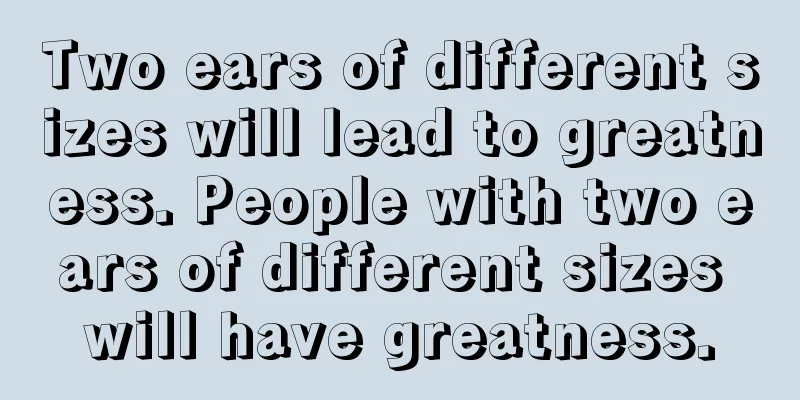SAP, the leader in enterprise software: The financial industry is not the first stop for blockchain reform

|
Note: The author of this article is Pat Bakey, president of SAP, a global provider of enterprise applications and solutions. The world's top technologies always face many obstacles when they are first released. In fact, given its practicality and application limitations, it is expected and even reasonable for an industry to be reluctant to accept the latest, untested technology. However, the arrival of an innovative technology usually not only subverts an industry, but also completely reshapes the entire business world. For example, the Internet was once skeptical, but now it has become the most influential technology in modern civilization. When facing such technologies, it is important for you and your company to think carefully and find your position among the many skeptics. Blockchain is one such technology. Bitcoin is a well-known digital currency that first adopted blockchain technology. The early "evil legend" about Bitcoin pointed directly to its "collusion" with the dark web. As blockchain technology matures, the outside world's misunderstanding of it has not been eliminated: this technology can only be used in the financial services industry. In fact, the public's understanding of blockchain is not wrong, it's just not comprehensive. At its core, blockchain is a global distributed ledger containing information about digital transactions. This ledger can run on millions of devices, visible to everyone, and can be used to securely transfer and store anything of value, including currency, art, intellectual property, and even votes. Harvard Business Review once wrote:
Who stands to profit most from blockchain?If used properly, blockchain’s essential versatility enables it to reshape almost every industry. In the future, the popularity of blockchain will not be good news for those who work in the “trust business”, which refers to centralized institutions and systems such as banks, clearing houses and government departments, which currently handle the vast majority of transactions because the public sees them as trustworthy. In fact, the first blockchain use case that impacts consumers has nothing to do with banks. This may sound somewhat ironic. The first use case of blockchain technology (Bitcoin) was related to currency, so most consumers and business leaders believe that banking and capital markets are the first users of blockchain. If blockchain follows the development track of big data, the first blockchain use cases will definitely be related to today's large Internet companies, such as Facebook, Google and Amazon. Internet companies with large business networks can regard blockchain as an auxiliary technology to further expand their business and increase the value of their business. In addition, once companies with large user bases such as Google and Facebook adopt blockchain technology, they can even have a certain impact on the banking industry. One day, they will be able to use blockchain to drive market innovation, and financial services including payments will be disrupted, and banks will eventually be surpassed. However, most traditional industries, such as banking, healthcare, physical retail, media and telecommunications, have systems that are both traditional and complex, which hinder the development of transformative technologies. They may even disdain these technologies because the user base in their systems is strong enough. However, this situation is quietly changing. At present, large enterprises are trying to keep pace with nimble startups and Internet companies. In contrast, they pay more attention to emerging technologies and are more likely to resonate with new users, who definitely have the potential to become major players in today's business world. Blockchain and digital economic reformToday, digital transformation is an important factor in maintaining corporate competitiveness. But in most cases, achieving digital transformation is not as simple as imagined. Ironically, the industries that are currently eager to adopt blockchain technology once thought they were still far away from the strategic transformation of the business ecosystem. Companies that actively face digital transformation can regard blockchain as a way to expand their business, which is enough to bring them more revenue and enable them to stand firm in today's market. Blockchain can even bring them a younger generation of customers, consolidating their position in the digital economy transformation in the long run. For example, the legal industry, which has long relied on paper documents for data and information, could benefit from smart contracts. Smart contracts consist of code that automatically executes the terms of a contract when certain conditions are met. For example, a smart contract for a car loan predetermines that the car can only be started after the owner pays a specified amount of the loan. Smart contracts are essential in most blockchain solutions, which can greatly reduce transaction costs and provide higher security. Healthcare is another area that is in urgent need of digital transformation. In this industry, blockchain can ensure the security of digital assets, such as medical records. At that time, patients will be able to access their medical records more efficiently and share data while maintaining control over the information. Blockchain can also be used in the entertainment and media industries. For example, with blockchain, news websites can charge readers based on the number of articles they read, eliminating the need for monthly fees. In addition, these low-cost, small transactions on the blockchain do not charge any fees, unlike existing payment platforms. Blockchain ledgers can even be used to protect intellectual property such as music and movies, standardize usage rights, and put an end to digital piracy. The advent of the Internet has also made our generation successful, providing us with more convenient channels for obtaining information and more financial solutions. As a result, traditional financial institutions have lost a considerable market share. It is becoming increasingly difficult to gain the trust of the "millennial generation". In the highly competitive market environment, traditional industries can no longer make a trade-off between price and product. Executives have clearly realized that times are changing, and the early adoption of blockchain technology can effectively prevent the industry from completely dying out. |
<<: India's ICICI Bank CEO: We continue to pay attention to blockchain technology
Recommend
Does messy hand lines mean that the body is unhealthy?
Although the lines on our palms are densely packed...
A face with evil eyes
Since ancient times, people with evil eyes are ea...
Investment cannot be copied
At the end of the September 27 article, there was...
Will having a mole that kills children affect a woman's fortune?
Having a mole that kills children often makes peo...
The second batch of hydropower consumption enterprises in Sichuan disclosed the first year of mine compliance
Wu Blockchain learned that Sichuan recently discl...
How to judge a man by his eyes
People often say that eyes are the windows to a p...
Analysis of the eight common signs of failure in physical appearance
Analysis of the eight common signs of failure in ...
What does a mole on the tip of the nose mean?
The nose is located in the center of the face and...
Announcement | MEER landed on F2 Pool
We are happy to announce that MEER has been inclu...
F2Pool Fish Pool - BitExpress 21T R1 Miner Review
BitExpress is a new mining machine developed by a...
Knowing people's hearts through moles
Moles in different positions represent different ...
BCD (Bitcoin Diamond) Mining Tutorial
1. Mining equipment and mining environment Mining...
Ezil launches single mining opportunities for ETH and ETC
How does single mining work? As we all know, in E...
Well-known market research organization: Blockchain + insurtech creates a $235 billion market
The passengers riding the blockchain are not just...
What is island pattern?
In traditional Chinese palmistry, it is believed ...









